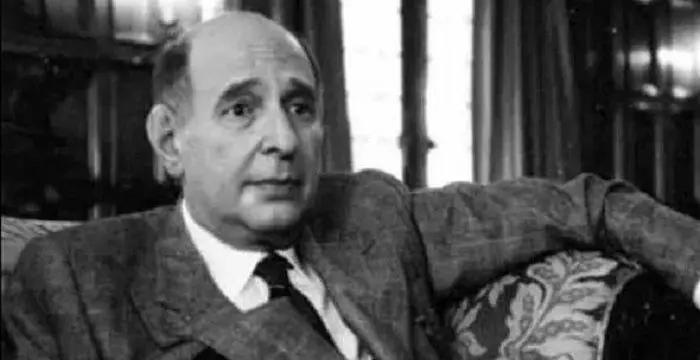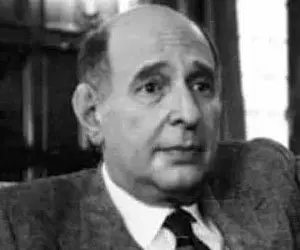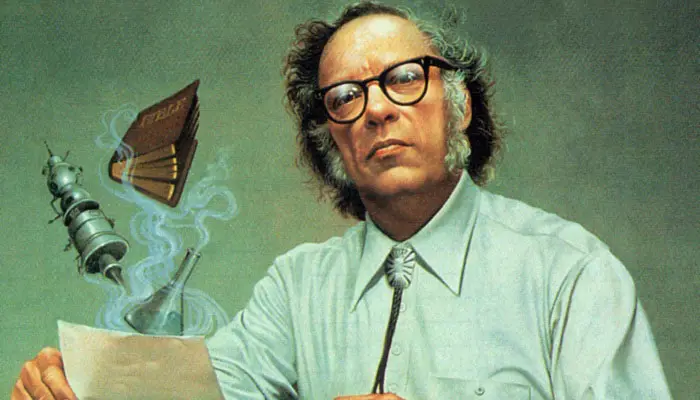
Allan Bloom - Intellectuals & Academics, Timeline and Childhood
Allan Bloom's Personal Details
A philosopher, academician and classicist, Allan Bloom was widely known for his critique of American Universities, in failing to serve the fundamental needs of their students
| Information | Detail |
|---|---|
| Birthday | September 14, 1930 |
| Died on | October 7, 1992 |
| Nationality | American |
| Famous | Intellectuals & Academics, Philosophers |
| Siblings | Lucille |
| Universities |
|
| Cause of death |
|
| Birth Place | Indianapolis |
| Religion | Jewish |
| Gender | Male |
| Sun Sign | Virgo |
| Born in | Indianapolis |
| Famous as | Philosopher |
| Died at Age | 62 |
// Famous Intellectuals & Academics
Bertil Gotthard Ohlin
Bertil Gotthard Ohlin was a famous Swedish economist. This biography profiles his childhood, family life & achievements.
Emily Greene Balch
Emily Greene Balch was an American economist, sociologist and pacifist who won the 1946 Nobel Peace Prize. This biography of Emily Greene Balch provides detailed information about her childhood, life, achievements, works & timeline.
Martin Buber
One of the greatest philosophers to have ever walked on earth, Martin Buber contributions to philosophy is a long-standing one. Explore all about his profile, childhood, life and timeline here.
Allan Bloom's photo
Who is Allan Bloom?
A philosopher, academician and classicist, Allan Bloom was widely known for his critique of American Universities, in failing to serve the fundamental needs of their students. He was born in Indianapolis, Indiana, to a second generation Jewish Orthodox Prussian couple who brought him up simply, but with solid values, a foundation on which he would expand all his life. When he was 13, he already wanted to go to the University of Chicago, having read about it in the Reader's Digest. A few years later, his dream became reality as his family moved to Chicago and he was admitted, at the early age of 16, to the gifted students program; inspired by Chicago University President Robert Hutchins, who sought to create a new generation of elite minds. Over the years, he studied with many great thinkers including, Leo Strauss, who perhaps influenced him the most, but also David Greene, Richard McKeon, and Alexandre Kojève, among others. All these people helped him formulate his premise and purpose of the need for university students to read the classics. In the book, ‘Closing of the American Mind’, Bloom writes: "The substance of my being has been informed by the books I learned to care for." This summarizes the gift Allan Bloom has left for humanity. All his works manifested his concern for the preservation of a philosophical way of life for future generations, whether political or literary. He left us with his own life as an example.
// Famous Philosophers
Martin Buber
One of the greatest philosophers to have ever walked on earth, Martin Buber contributions to philosophy is a long-standing one. Explore all about his profile, childhood, life and timeline here.
Lao Tzu (Laozi)
Lao Tzu was a legendary Chinese philosopher who wrote the important “Daodejing”. This biography profiles his childhood, life, career, achievements and timeline.
Alan Watts
Alan Watts was a famous British philosopher known for his Zen teachings and interpretations of Eastern philosophy. Read more about this great philosopher in the following article.
Childhood & Early Life
Allan Bloom was born on September 14, 1930. Bloom's grandparents were Orthodox Jewish immigrants to Philadelphia. Bloom's parents, however, ended up in Indianapolis where Bloom was born. Both his parents worked for community improvement. Bloom also had an elder sister, Lucille.
He was educated in the Indianapolis public school system until he was 16. During this time his family moved to Chicago, where he was admitted to the University of Chicago, from where he earned a B.A. in 1949.
Career
Bloom began graduate work in cross-disciplinary studies with the elite, ‘Committee on Social Thought’, program. This is when he came under the influence of Leo Strauss, a German immigrant and political philosopher, whose teachings made him realize the aim of a truly liberal arts education.
Bloom earned his Master's degree, in 1953 from the University of Chicago. As part of his graduate work, he taught philosophy, in Paris, at the ‘Ecole Normale Supérieur’, for the next two years. This is also when he studied under the Hegelian specialist, philosopher Alexandre Kojève.
Bloom began teaching at the University of Chicago, following his Ph.D., in 1955 and taught with his colleague and friend Werner Dannhauser, the author of Nietzsche's View of Socrates.
He went on to teach at Yale in 1962, serving as a visiting assistant professor.
In 1963, he moved to Cornell and taught as assistant professor in political science. He was also a member of the Telluride Association, which aimed at grooming students and teaching them the basics of self-governance, by allowing them to manage the affairs of the association themselves.
He finished his work, ‘Shakespeare's Politics’, a compilation of three essays on the plays of Shakespeare, in 1964. He became a tenured professor a year later.
In 1968, Bloom finished his translation of Plato's Republic. The interpretation, of Plato’s work was one of the most significant contributions of Bloom to the society.
Unhappy with the way Cornell handled student revolts, Bloom took a leave to go first to Israel and then to Paris, where he taught as a visiting professor for the 1969-70 academic year.
In 1970, Bloom resigned from Cornell and took up a professorship at the University of Toronto in Political Science. During his tenure he continued his work as a translator, interpreting the work of Jean-Jacques Rousseau.
In 1979, still in Toronto, Bloom completed his translation of ‘Emile, Or on Education’ by Rousseau.
In 1979, he returned to the University of Chicago and accepted a full professorship. He met and befriended Saul Bellow and began teaching with him. He remained in this position until his death.
Major Works
Bloom translated and interpreted many great works, but it was his translation of Plato's Republic in 1968 that won him the most acclaim. He was greatly influenced by his teacher and mentor, Leo Strauss, and this was evident in his interpretation.
Bloom's most acclaimed book, ‘The Closing of the American Mind’, was published in 1987. The book received many positive reviews, but also stirred some great controversies. This is where, Bloom developed his idea of relativism, as being open to everything but where critical thinking could no longer function.
Personal Life & Legacy
Bloom did not marry and was totally committed to his own mission. He died on October 7, 1992 at the age of 62.
His last book ‘Love and Friendship’ was published posthumously. The book interpreted the meaning of love through the reading of a reading of novels by Stendhal, Jane Austen, Flaubert and other classics.
Bloom lived more for the advancement of humanity than he did for himself, although he did not reject his own needs; rather he was driven by the desire to teach.
Trivia
This American philosopher was described as being gentle and jovial, but so intense that at times he smoked cigarettes from the wrong end.
// Famous AIDS peoples
Gia Carangi
Gia Carangi was one of the very first supermodels from the USA. Check out this biography to know about her birthday, childhood, family life, achievements and fun facts about her.
Eazy-E
Eazy-E (Eric Lynn Wright) was an American rapper fondly referred to as "The Godfather of Gangsta rap". This biography of Eazy-E provides detailed information about his childhood, life, achievements, works & timeline
Isaac Asimov
Isaac Asimov was an American professor of biochemistry and a renowned author of science fiction and popular science books. Read this biography to know more about his life.
Allan Bloom biography timelines
- // 14th Sep 1930Allan Bloom was born on September 14, 1930. Bloom's grandparents were Orthodox Jewish immigrants to Philadelphia. Bloom's parents, however, ended up in Indianapolis where Bloom was born. Both his parents worked for community improvement. Bloom also had an elder sister, Lucille.
- // 1949He was educated in the Indianapolis public school system until he was 16. During this time his family moved to Chicago, where he was admitted to the University of Chicago, from where he earned a B.A. in 1949.
- // 1953Bloom earned his Master's degree, in 1953 from the University of Chicago. As part of his graduate work, he taught philosophy, in Paris, at the ‘Ecole Normale Supérieur’, for the next two years. This is also when he studied under the Hegelian specialist, philosopher Alexandre Kojève.
- // 1955Bloom began teaching at the University of Chicago, following his Ph.D., in 1955 and taught with his colleague and friend Werner Dannhauser, the author of Nietzsche's View of Socrates.
- // 1962He went on to teach at Yale in 1962, serving as a visiting assistant professor.
- // 1963In 1963, he moved to Cornell and taught as assistant professor in political science. He was also a member of the Telluride Association, which aimed at grooming students and teaching them the basics of self-governance, by allowing them to manage the affairs of the association themselves.
- // 1964He finished his work, ‘Shakespeare's Politics’, a compilation of three essays on the plays of Shakespeare, in 1964. He became a tenured professor a year later.
- // 1968In 1968, Bloom finished his translation of Plato's Republic. The interpretation, of Plato’s work was one of the most significant contributions of Bloom to the society.
- // 1968Bloom translated and interpreted many great works, but it was his translation of Plato's Republic in 1968 that won him the most acclaim. He was greatly influenced by his teacher and mentor, Leo Strauss, and this was evident in his interpretation.
- // 1969 To 1970Unhappy with the way Cornell handled student revolts, Bloom took a leave to go first to Israel and then to Paris, where he taught as a visiting professor for the 1969-70 academic year.
- // 1970In 1970, Bloom resigned from Cornell and took up a professorship at the University of Toronto in Political Science. During his tenure he continued his work as a translator, interpreting the work of Jean-Jacques Rousseau.
- // 1979In 1979, still in Toronto, Bloom completed his translation of ‘Emile, Or on Education’ by Rousseau.
- // 1979In 1979, he returned to the University of Chicago and accepted a full professorship. He met and befriended Saul Bellow and began teaching with him. He remained in this position until his death.
- // 1987Bloom's most acclaimed book, ‘The Closing of the American Mind’, was published in 1987. The book received many positive reviews, but also stirred some great controversies. This is where, Bloom developed his idea of relativism, as being open to everything but where critical thinking could no longer function.
- // 7th Oct 1992Bloom did not marry and was totally committed to his own mission. He died on October 7, 1992 at the age of 62.
// Famous American peoples
Wentworth Miller
Wentworth Miller is an American actor and screenwriter who achieved recognition for his role in the TV series ‘Prison Break’.
Jason Simpson
Jason Simpson is the son of former NFL running back, broadcaster and actor O. J. Simpson. Check out this biography to know about his childhood, family, life, and little known facts about him.
Melissa Brim
Melissa Brim is the ex-girlfriend of former professional boxer Floyd Mayweather Jr. Check out this biography to know about her birthday, childhood, family life, achievements and fun facts about her.
Skai Jackson
Skai Jackson is an American child actress with huge fan following. Find more about her family & personal life, relationships, facts and more.
Joyce Meyer
Joyce Meyer is a Christian author and speaker. This biography provides detailed information about her childhood, life, achievements, works & timeline
Zoe LaVerne
Zoe LaVerne is an American musical.ly star. Check out this biography to know more about her family, personal life, including her age, birthday, etc.
Allan Bloom's FAQ
What is Allan Bloom birthday?
Allan Bloom was born at 1930-09-14
When was Allan Bloom died?
Allan Bloom was died at 1992-10-07
Where was Allan Bloom died?
Allan Bloom was died in Chicago
Which age was Allan Bloom died?
Allan Bloom was died at age 62
Where is Allan Bloom's birth place?
Allan Bloom was born in Indianapolis
What is Allan Bloom nationalities?
Allan Bloom's nationalities is American
Who is Allan Bloom siblings?
Allan Bloom's siblings is Lucille
What was Allan Bloom universities?
Allan Bloom studied at University of Chicago
What is Allan Bloom's cause of dead?
Allan Bloom dead because of AIDS
What is Allan Bloom's religion?
Allan Bloom's religion is Jewish
What is Allan Bloom's sun sign?
Allan Bloom is Virgo
How famous is Allan Bloom?
Allan Bloom is famouse as Philosopher














